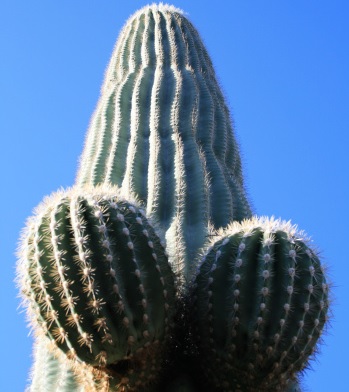freediver
Gold Member
     Offline
Offline

www.ozpolitic.com
Posts: 48833
At my desk.
|
And Allaah knows best.
http://islamqa.info/en/83423
The benefits of drinking camel urine
ar
I hope that you can provide me with a scientific answer – if such knowledge is available – about the saheeh hadeeth about drinking camel’s urine. May Allaah reward you.
Praise be to Allaah.
The hadeeth referred to by the questioner is a saheeh hadeeth, in which it says that some people came to Madeenah and fell sick. The Prophet (peace and blessings of Allaah be upon him) told them to drink the milk and urine of camels, and they recovered and grew fat. In the story it also says that they apostatized and killed the camel-herder, then the Muslims caught them and executed them. Narrated by al-Bukhaari (2855) and Muslim (1671).
With regard to the health benefits of drinking the milk and urine of camels, they are many, and they are well known to the earlier generations of medical science and they have been proven by modern scientific research.
Ibn al-Qayyim said:
The author of al-Qanoon (the Canon) – i.e. the doctor Ibn Seena (Avicenna) – said:
The most beneficial of urine is the urine of Bedouin camels which are called najeeb. End quote.
Zaad al-Ma’aad (4/47, 48).
In the Emirati newspaper al-Ittihaad (issue no. 11172, Sunday 6 Muharram 1427 AH/5 February 2006) it says:
One of the most important things for which camels are raised is their milk, which is efficacious in treating many illnesses, including hepatitis, and the digestive system in general, various types of cancer and other diseases.
In an article by Dr Ahlaam al-‘Awadi, which was published in al-Da’wah magazine, issue no. 1938, 25 Safar 1425 AH/15 April 2004 CE, about the diseases which can be treated with camel’s milk, as proven by experience, it says that there are many benefits in camel’s milk. There follows some of what was said in the article by Dr. Ahlaam:
Camel’s urine is efficacious in the treatment of skin diseases such as ringworm, tinea and abscesses, sores that may appear on the body and hair, and dry and wet ulcers. Camel’s urine brings the secondary benefits of making the hair lustrous and thick, and removing dandruff from the scalp. Camel’s milk is also beneficial in treating hepatitis, even if it has reached an advanced stage where medicine is unable to treat it. End quote.
In the al-Jazeerah al-Sa’oodiyyah newspaper (issue no. 10132, Rabee’ al-Awwal 1421 AH) there is a quotation from the book Al-Ibl Asraar wa i’jaaz (The camel: secrets and wonders) by Darmaan ibn ‘Abd al-‘Azeez Aal Darmaan and Sanad ibn Mutlaq al-Subay’i:
As for camel’s urine, the book suggests that it has numerous uses which are beneficial for man. This is indicated by the Prophetic texts and confirmed by modern science … Scientific experiments have proven that camel’s urine has a lethal effect on the germs that cause many diseases.
Among the uses of camel’s urine, many women use it to wash their hair, to make it longer, and to make it lighter and more lustrous. Camel’s urine is also efficacious in the treatment of swelling of the liver and other diseases such as abscesses, sores that appear on the body and toothache, and for washing eyes. End quote.
Prof. Dr. ‘Abd al-Fattaah Mahmoud Idrees says: With regard to the benefits of camel’s urine in treating disease, Ibn Seena said in his Qanoon: The most beneficial of urine is the urine of the Bedouin camels known as najeeb. Camel’s urine is beneficial in treating al-hazaaz, and it was said that al-hazzaz is a pain in the heart caused by anger and so on. Camel’s urine, especially the urine of a young she-camel – is used as a cleansing substance to wash wounds and sores, to make the hair grow, to strengthen and thicken it and to prevent it falling out, and it is used to treat diseases of the scalp and dandruff. In a Master’s thesis by an engineer in applied chemistry, Muhammad Awhaaj Muhammad, that was submitted to the faculty of applied chemistry in the al-Jazeerah university in Sudan, and approved by the Dean of science and postgraduate studies in the university in November 1998 CE, entitled A Study of the Chemical Composition and Some Medical Uses of the Urine of Arabian Camels, Muhammad Awhaaj says:
Laboratory tests indicate that camel’s urine contains high levels of potassium, albuminous proteins, and small amounts of uric acid, sodium and creatine.
In this study, he explained that what prompted him to study the medicinal properties of camel’s urine was what he had seen of some tribesmen drinking this urine whenever they suffered digestion problems. He sought the help of some doctors in studying camel’s urine. They brought a number of patients and prescribed this urine for them, for a period of two months. Their bodies recovered from what they had been suffering from, which proves the efficacy of camel’s urine in treating some diseases of the digestive system.
It also proves that this urine is useful in preventing hair loss. He says:
Camel’s urine acts as a slow-acting diuretic, but it does not deplete potassium and other salts as other diuretics do, because camel’s urine contains a high level of potassium and proteins. It has also been proven to be effective against some types of bacteria and viruses. It brought about an improvement in the condition of twenty-five patients who used camel’s urine for dropsy, without disrupting their potassium levels. Two of them
|

 Forum
Forum

 Home
Home 

 Album
Album 

 Help
Help

 Search
Search

 Recent
Recent 

 Rules
Rules 

 Login
Login

 Register
Register





 Pages:
Pages: 

